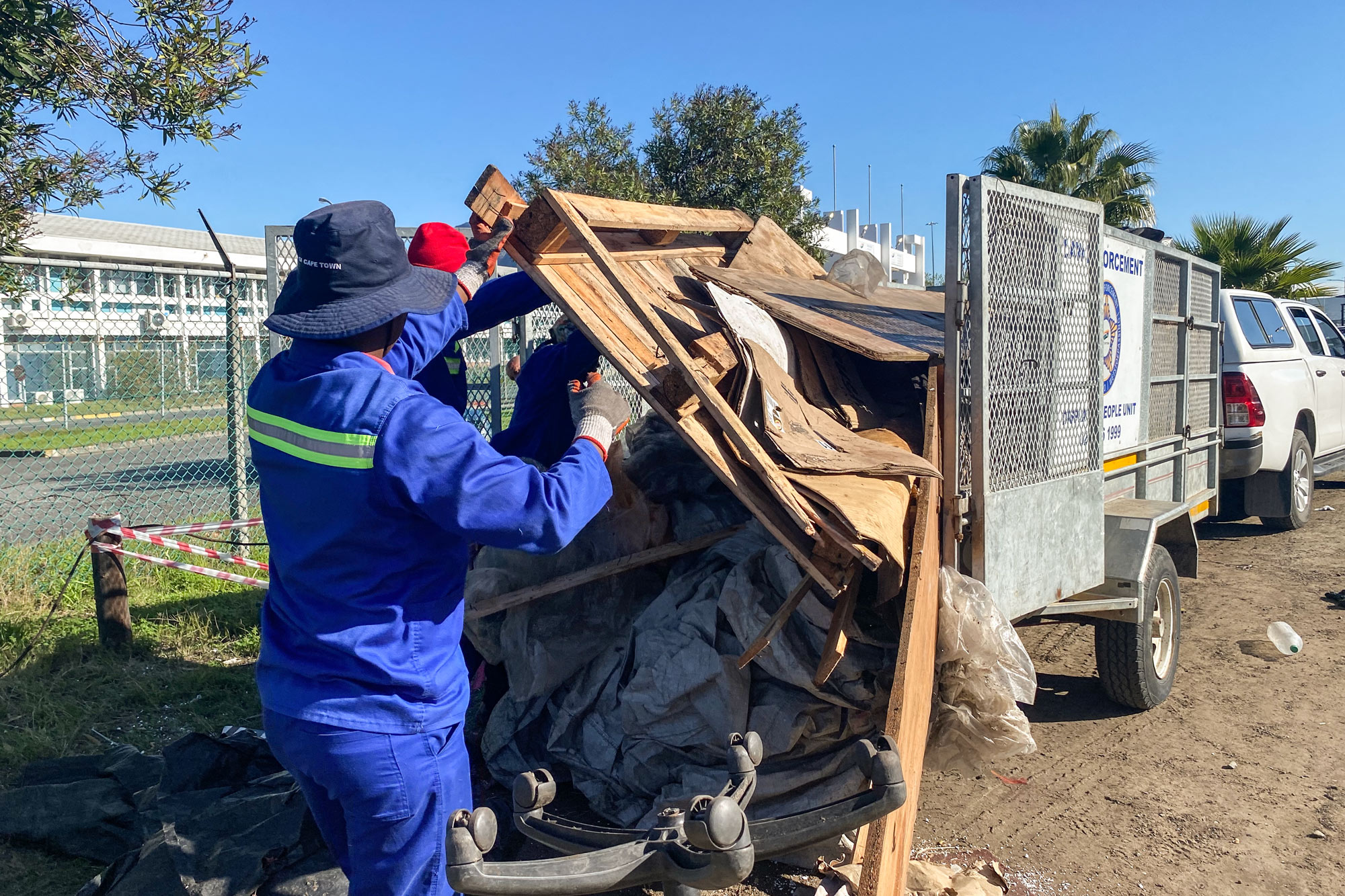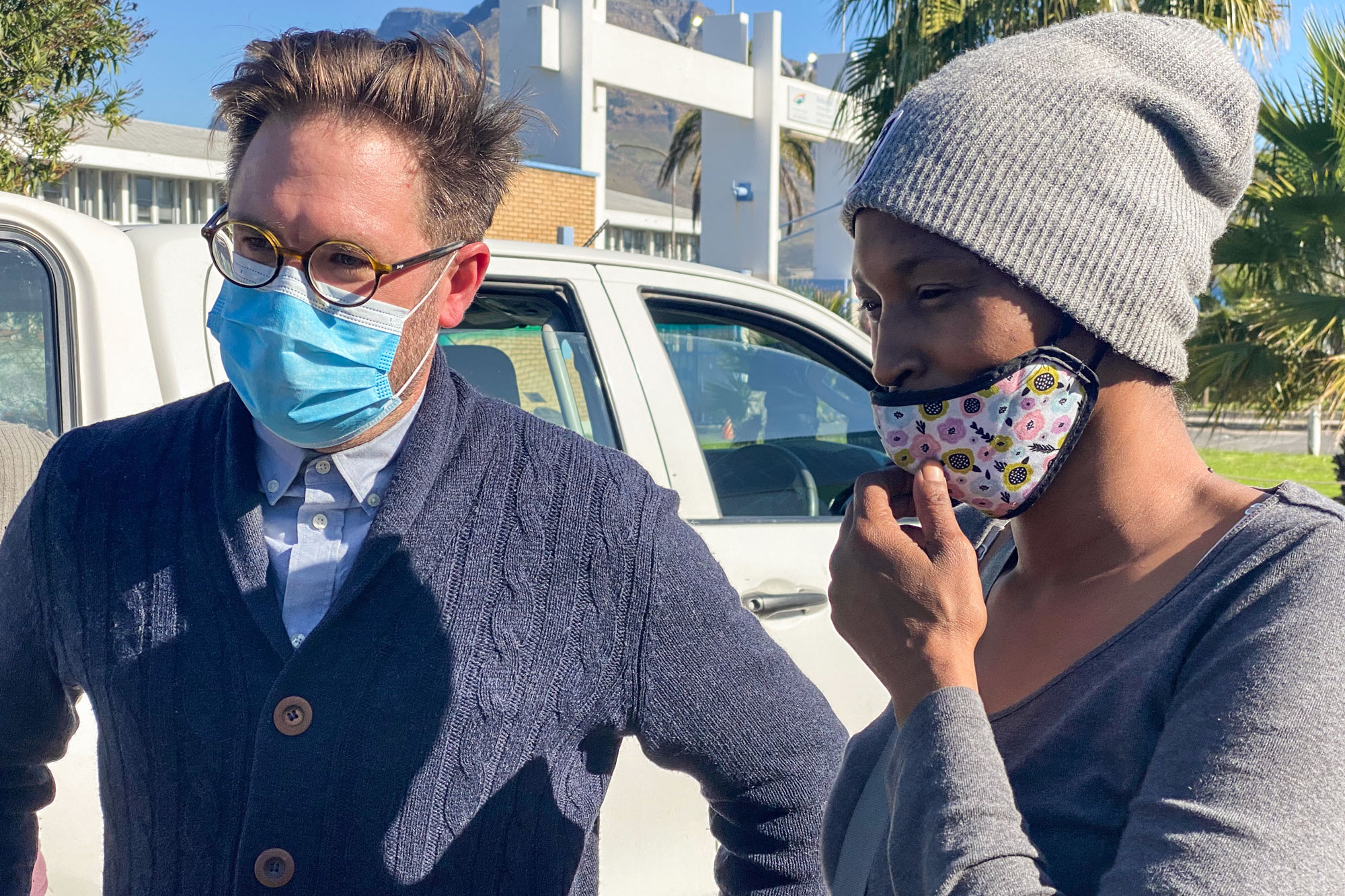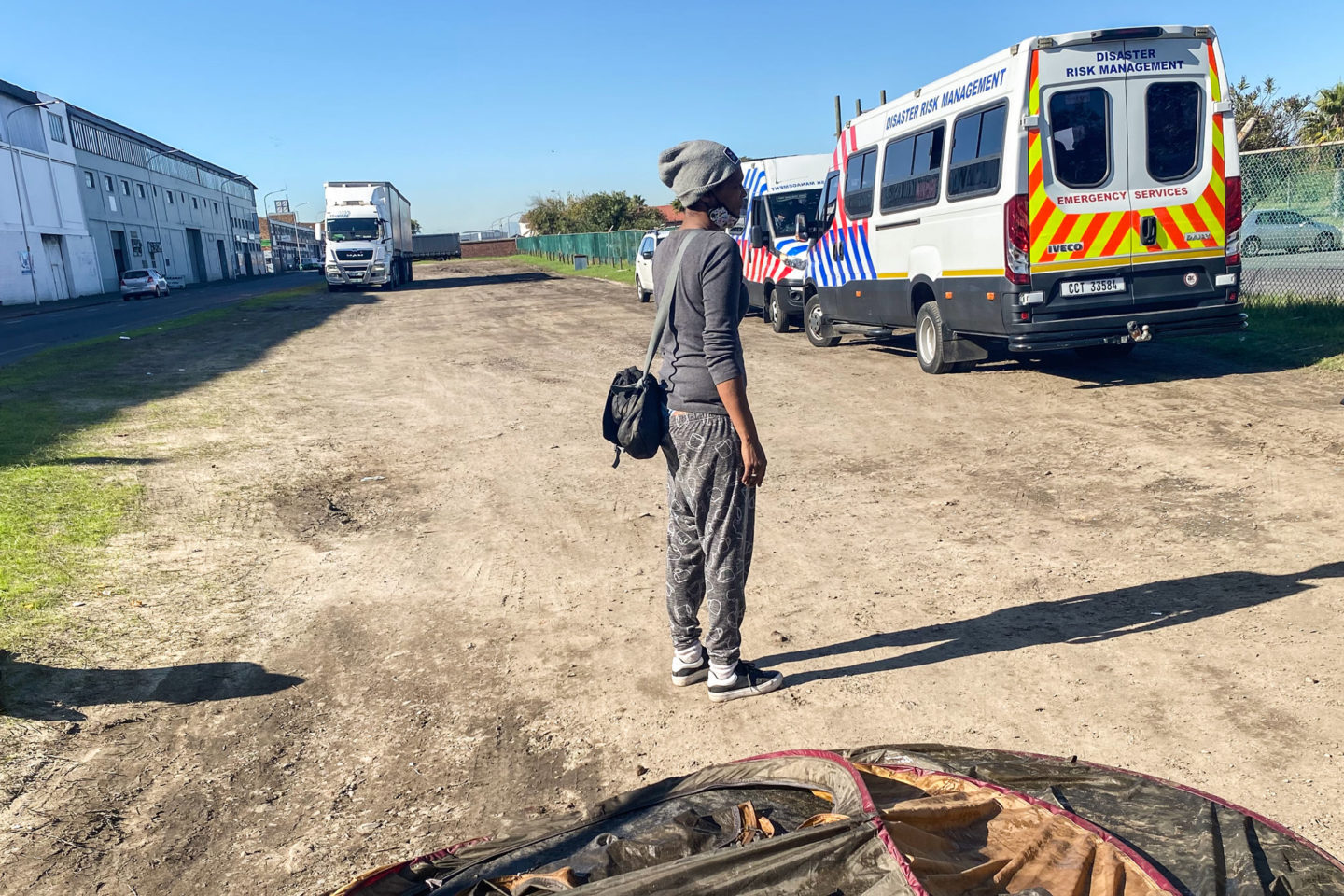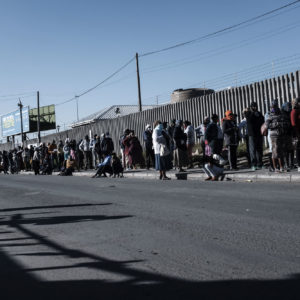Read the translated article in Afrikaans
Law enforcement officers confiscated tents and shelter-building materials, along with documents and personal items, during a “clean-up operation” on 25 May at the colonial fortress in Cape Town. Joslyn Thomas, 33, has been living outside the grounds of the Castle of Good Hope for about six months.
The Castle is one of the oldest buildings in Cape Town and one of the first you see when coming off the highway into the city. There is a moat running around it and about 20 shelters on the outside of the grounds. Thomas was at the site on the Foreshore in the Cape Town central business district (CBD) when officials raided the community.
A single mother raised Thomas in Bishop Lavis, a suburb on the Cape Flats about 19km from the Cape Town CBD. She says it was not easy for her family growing up. “I can tell you I came from a mother who brought up four girls on her own,” she says.
Related article:
“It was harsh on her. It’s hectic to see because she struggles. Many of these people that stay outside, their parents or families are not very rich. But because they [the City and police] have everything they think it’s better to look down than to help. Some of us work for whatever we’ve got. The people are washing the taxis and cars in order to make money. Some people are going to dustbins for something to eat during the day. It’s a hectic situation and it doesn’t pay a lot.”
Law enforcement officials came with four vehicles and started confiscating tents, clothing and blankets. Among the items taken were identity documents, asylum-seeker permits, mattresses, HIV and tuberculosis medication, clinic cards, and other personal documentation. The officials also did not present a court order to justify their actions.

Thomas turned to the activist law centre Ndifuna Ukwazi, which took the City of Cape Town to court. Thomas is the main applicant in the interdict against the City, which was granted on 1 June. The City and Ndifuna Ukwazi came to a settlement to return all the belongings it had taken.
But when the more than 10 people living near the Castle arrived at the collection point, they were left thoroughly disappointed. Not all the confiscated items were returned. Only one woman could identify her tent.
Thomas says she is disappointed in how City officials treated the community when they went to collect their items. “It happened the way it did. Now the court case is finalised and I want to see what’s going to happen here. I saw the structures were on the pavement. The reason for them putting us on the pavement, I have no idea. We were told to stand outside and wait for the stuff. If everyone knew we were going to stand on the pavement like that, nobody would have gone.”
Losing everything
As per the court order, the City was interdicted from evicting, demolishing, removing, impounding, confiscating or otherwise disposing of the tents or other habitable structures or materials used for habitable structures (including but not limited to plastic sheets and cardboard) of the applicants pending the outcome of another case, Gelderbloem and 10 Others v City of Cape Town. It is set to be heard at the equality court and challenges the City’s new street by-laws approved by council last year. The interdict will remain in place until the outcome of the Gelderbloem case.
Thomas says that people need to be more empathetic towards those sleeping rough. “You are never too big or too small to fall. You are never above losing everything. None of them will be able to cope with the lifestyle the people here have to go through. Many have to put up with a lot of things. You have to have a lot of strength and be able to handle a lot of things. Here outside it’s more vile than they think. When you have everything, it’s easy to look down on somebody, but when you have nothing you will be able to see what the person is talking about.”

When she moved to the streets Thomas watched others to survive. She stayed on the streets of Parow, a suburb in the north of Cape Town, for about seven years. After that she moved to Goodwood and Elsies River for two years. She moved to the Cape Town CBD because of an increase in gang activities and because of the lure of possible work.
“It was difficult because my son was coming to visit me, and I did not want him to be exposed or get involved in any gang activity,” Thomas says.
Being on the streets in winter is a big concern. “Some of the people don’t have something to sleep under. It’s extremely wet. Even now when it is hot during the day, at night you will be shivering. It is extremely cold. Sometimes it’s wet and there is no place to make you dry. You are not allowed to make fire to dry yourself. It’s going to be hectic because people are saying that it is going to be a cold winter this year.”
A vicious circle
Jonty Cogger, attorney at Ndifuna Ukwazi, says the organisation’s law centre is considering all legal options, adding that a more holistic approach is needed to solve homelessness.
“Policing people to go to shelters is fundamentally misguided and will only serve to entrench a person’s poverty,” says Cogger. “There are more humane and dignified solutions to homelessness that do not involve treating people and their belongings with disdain. What unhoused people need is care and compassion to assist them out of homelessness and not abuse and alienation.”
He also says that the City did not follow its own procedures at the collection site. “The whole system is broken. State houses on the periphery just entrench people’s poverty. Homelessness and the delivery of houses is complicated. You can’t criminalise someone’s position. There have to be multiple interventions in order to resolve this. You have to look at every single available option and do what has the most long-term results. Multiple administrations are failing in their duty to regulate land.
“We got stuck in this vicious loop. It’s about the status quo being maintained. You are going to make someone’s life intolerable. It’s going to make them distrust and despise you.”

The City of Cape Town stated that it was conducting a waste-clearing operation at the Castle because of unhygienic conditions, including hazardous human waste. “These clean-up operations occur regularly with the knowledge and consent of unlawful occupants.”
In a media statement on 1 June, the City wrote: “No occupied shelters were knowingly removed, with the only shelter material removed during the operation on 25 May being four vacant, empty tents, as well as abandoned materials, including plastic and bricks.” The statement also refuted claims that officials confiscated belongings such as medication or identity documents.
The City of Cape Town failed to answer specific questions in a media query regarding the 3 June incident at the collection site. It also did not provide details of its policy on confiscating materials and whether or not these procedures were followed.


